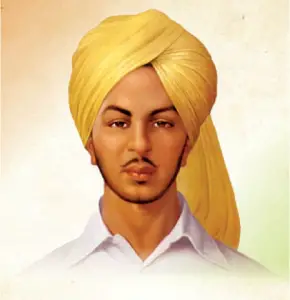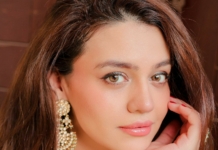It took two centuries for Punjab to officially recognise its hero, Maharaja Ranjit Singh. Some other legends, however, are yet to be sung.
The unveiling of the statue of the Sikh empire’s founder at Lahore Fort in 2019 received applause from Punjabi nationalists and historians all over the world. It is, however, quite unfortunate that governments have never considered honouring the valour and resistance of Dulla Bhatti, Rai Ahmad Khan Kharal and Bhagat Singh, despite repeated demands by Punjabi nationalists.
Known as the lion of Punjab, Maharaja was born in 1780 in Gujranwala’s Sukarchakia Misil of Sikhs. He seized Lahore at the age of 19 in 1799 after he was invited to rule the city by its Muslim, Sikh and Hindu residents. Lahore, at that point in time, was presenting a gloomy picture but Ranjit Singh brought peace and security to Lahore and revived its economic and cultural glory. He proclaimed himself the maharaja of Punjab in 1801, and proceeded to rule with religious tolerance for all communities, eventually meeting his demise in 1839.
Rai Ahmad Khan Kharal

Punjab produced another lion, Rai Ahmad Khan Kharal, who came to the fore when Maharaja was fighting to secure his rule over the entire province. Kharral was a figure of resistance against British colonials. In his honour, Punjabis sang his dholas – a popular ancient genre of Punjabi poetry – for more than a century.
“Rai Ahmad Khan aakhay
Jamna tay mar wajna
Aay nal thoker day bhaj jawna
Kangan aay kachi wung da
Aakhay larsa’aan nal angrez dai
Jewain baldi shama, tay josh patang da”
(Rai Ahmad Khan says that life is temporary; it could meet its breaking point at any moment like a bangle. So, I will fight against the British colonials like a brightly burning candle and a kite flying high.)
Known as Ahmo Kharal in the rich fertile fields of Ganji Bar (Okara, Dipalpura, Pakpattan area), the legend embraced martyrdom while fighting against British rule at the peak of 1857’s war of freedom.
Bhagat Singh

Another hero was born in Sandal Bar (Faisalabad, Jhang districts) – exactly after 50 years of the martyr of Kharral of Ganji Bar, with the name of Bhagat Singh. The revolutionary young man challenged the rule of colonials, receiving love and popularity at times even more than Mahatma Gandhi and other political figures of the time.
Progressive Students Collective rights activist, Abdullah Malk and many others have long been demanding that Lahore’s Shadman Chowk be named after Bhagat Singh and his statue be placed at the site where he along with his two comrades was hanged on the 23rd of March, 1931, but the government has never paid attention to the demands.
It was Punjab’s Sandal Bar where Bhagat was born but the bar was named after Rai Abdullah Bhatti’s father, Rai Sandal Bhatti of Pindi Bhatyan- a tehsil of district Chiniot.
Dulla Bhatti

Dulla Bhatti (Rai Abdullah Bhatti), an icon of bravery and a trendsetter of peasants’ insurgency who opposed the taxation system of the mighty Mughal King Akbar was never accepted by the governments as a hero of Punjab. However, he has been and continues to be celebrated in the Indian Punjab. They celebrate Lohri, an annual festivity that falls in January and sing songs in the praise of Bhatti.
“Sunder mundriye ho! Tera kaun vicaharaa ho, Dullah bhatti walla ho,
Dullay di dhee vyayae ho, Sair shakkar payee ho” and so on.
According to a legend, Dulla had, on a man’s request, saved the prestige of an innocent, beautiful Hindu girl who was to be forcibly taken away by Mughal officials to their harem. Dulla arranged her marriage with a Hindu boy in his jungle fort at Rakh (a place lying between Gujaranwala and Sialkot).
Acting as her father, he gave the girl one kilo of sugar as her wedding present. In the absence of a priest, Dulla himself lit the sacred fire to complete the Hindu marriage. Dulla, a Muslim, was not acquainted with the holy verses Hindu priests chant on weddings. So, he sang ‘Sundar mudarye’ to complete the rituals.
Rai Abdullah was hanged in March of 1599 in Lahore for challenging Mughal rule.







